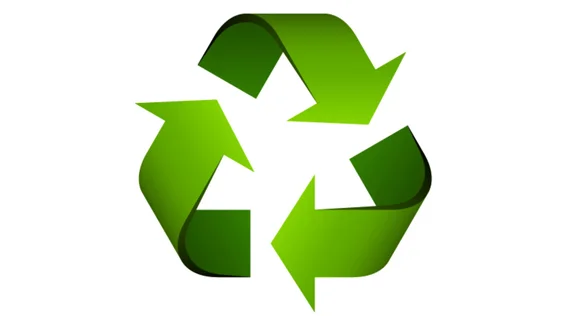
SEATTLE (Waste Advantage): Protein Evolution, Inc., a biological recycling company focused on decarbonizing plastic production, announced that it is partnering with the U.S. Department of Energy’s (DOE’s) Agile BioFoundry (ABF), Advanced Biofuels and Bioproducts Process Development Unit (ABPDU), and the Joint BioEnergy Institute (JBEI), a DOE Bioenergy Research Center, both led by Lawrence Berkeley National Laboratory, on two separate projects.
The first project will leverage the team’s collective advancements in artificial intelligence to create enzymes that break down plastic and textile waste, and the second will streamline the methods for manufacturing these enzymes at scale. JBEI, ABF and ABPDU are part of Berkeley Lab’s BioManufactory – a collaborative group of programs that partner with industry to provide expertise and support as companies develop, optimize, and scale-up their bio-based projects.
“Our innovative process uses AI to design novel enzymes to transform various types of polyester waste back into the building blocks of new polyester,” said Maren Wehrs, Director of Bioprocess Development of Protein Evolution. “These partnerships provide access to cutting-edge research, infrastructure, and a wealth of domain expertise that will help us accelerate sustainable waste management and the global transition to a lower-carbon, circular economy.”
Protein Evolution’s innovative technology is the first in the U.S. to use enzymes as a catalyst to successfully produce new polyethylene terephthalate (PET) from polyester textile waste. The PET resulting from Protein Evolution’s process is indistinguishable from the petroleum-derived virgin alternative, but with a far lower carbon footprint, and it is suitable for both textile and packaging grade applications. The company is actively scaling its commercial capacity to take in greater quantities and more diverse types of plastic waste as feedstock to facilitate the production of low-carbon polyester.
Protein Evolution’s partnerships with JBEI, ABF and ABPDU share the overarching goal to reduce emissions from petroleum-based plastic production and the landfilling and incineration of plastic waste. “Identifying and cost-effectively producing highly catalytic enzymes to transform waste into new products has the potential to significantly reduce industry’s reliance on petroleum,” said Jay Konieczka, Chief Technology Officer at Protein Evolution. “At scale, our technology will divert millions of waste products from landfills and the environment, helping to reduce pollution, conserve natural resources, and contribute to a more sustainable and cleaner future.”
The ABF, which is supported by DOE’s Bioenergy Technologies Office (BETO), is a consortium of seven national laboratories dedicated to the sustainable biomanufacturing of affordable fuels and chemicals. As one of the ABF’s five newly selected projects aimed to decarbonize society, Protein Evolution will use AI to design new classes of enzymes to break down plastic. The Protein Evolution team will collaborate with two ABF consortium members, the National Renewable Energy Laboratory (NREL) and Oak Ridge National Laboratory (ORNL), leveraging their expertise and infrastructure in high-throughput enzyme expression, characterization, and machine learning. The goal of the partnership is to accelerate the development of a polyester degrading enzyme system through generative AI and machine learning-enhanced search and optimization. “We aim to support biomanufacturing partnerships that enable sustainable industrial production of renewable fuels and chemicals for the nation,” said Gregg Beckham, NREL lead at the ABF. “Our teams across a consortium of national labs are excited to support Protein Evolution’s efforts to use advancements in biology to break down plastics.”
Protein Evolution is partnering with ABPDU, ABF, and JBEI to accelerate the development and readiness of new, affordable enzymes for manufacturing, with the goal of smoothly transitioning from proof of concept to world-scale production. “JBEI and Protein Evolution share the goal of optimizing carbon utilization – JBEI develops the science and technology to transform bioenergy crops into eco-friendly products, while Protein Evolution pioneers in recycling plastics to generate high-quality monomers,” said Blake Simmons, CSTO of JBEI.
In later stages of the project, ABPDU, which is also supported by BETO, will offer expertise in scalable fermentation and protein separation procedures. “Our capabilities will allow us to test large-scale production processes that will benefit Protein Evolution’s future scale-up plans,” said Deepti Tanjore, Director of ABPDU. “We are hopeful that this partnership will make a major impact on how plastic waste is handled and new plastic material is produced in the future.”
Courtesy: www.wasteadvantage.com



| Copper Scrap View All | |
| Alternator | 0.40 (0) |
| #1 Copper Bare Bright | 4.17 (-0.03) |
| Aluminum Scrap View All | |
| 356 Aluminum Wheels (Clean) | 0.81 (0) |
| 6061 Extrusions | 0.71 (0) |
| Steel Scrap View All | |
| #1 Bundle | 360.00 (0) |
| #1 Busheling | 380.00 (0) |
| Electronics Scrap View All | |